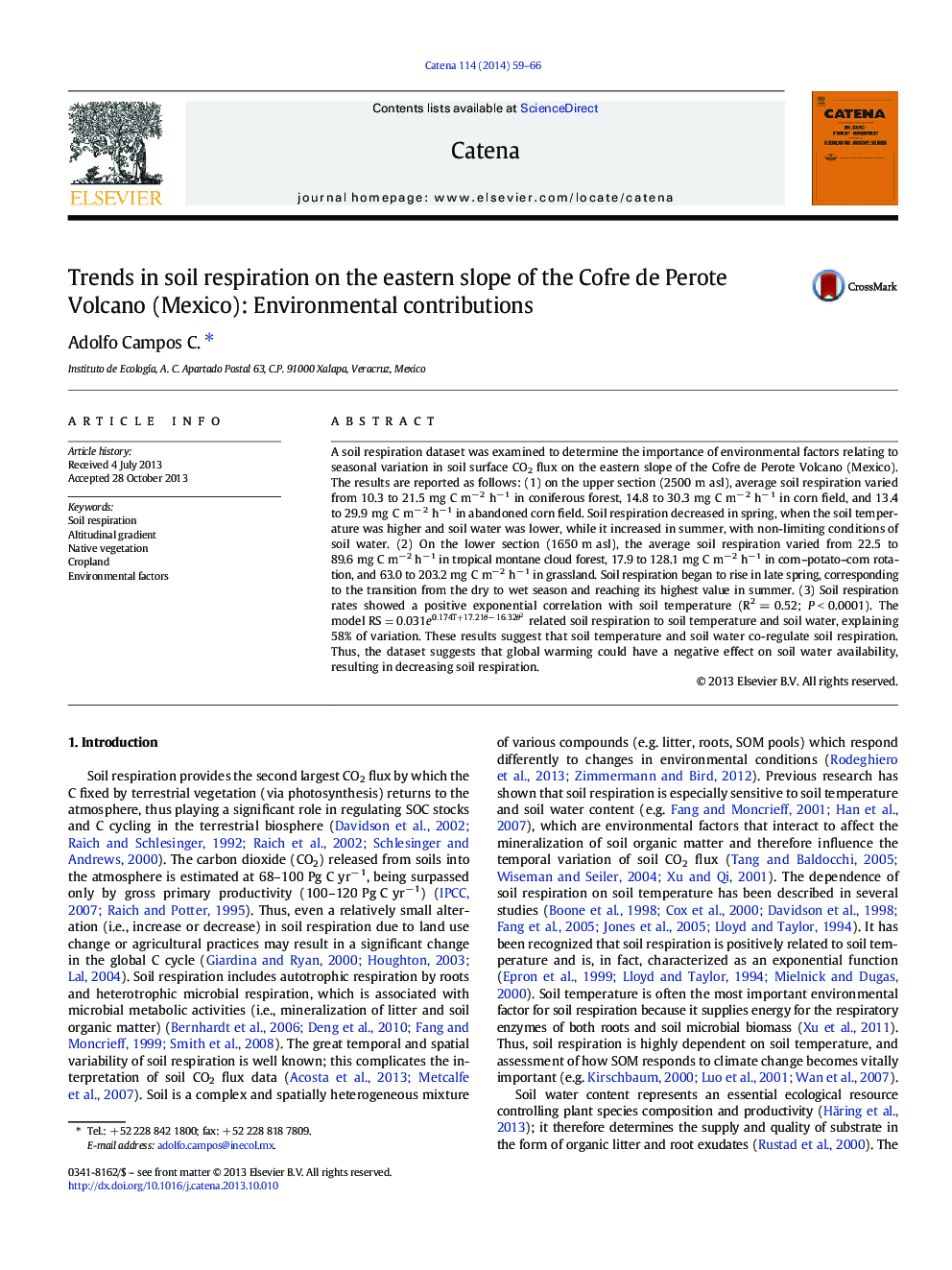| کد مقاله | کد نشریه | سال انتشار | مقاله انگلیسی | نسخه تمام متن |
|---|---|---|---|---|
| 4571491 | 1629238 | 2014 | 8 صفحه PDF | دانلود رایگان |

• I assessed the response of soil respiration to environmental factors.
• Soil respiration decreased in spring, when the soil temperature was higher.
• Soil respiration increased in summer, with non-limiting conditions of water.
• Soil respiration was best explained by the effects of soil temperature and water.
• Global warming could have a negative effect on soil respiration.
A soil respiration dataset was examined to determine the importance of environmental factors relating to seasonal variation in soil surface CO2 flux on the eastern slope of the Cofre de Perote Volcano (Mexico). The results are reported as follows: (1) on the upper section (2500 m asl), average soil respiration varied from 10.3 to 21.5 mg C m− 2 h− 1 in coniferous forest, 14.8 to 30.3 mg C m− 2 h− 1 in corn field, and 13.4 to 29.9 mg C m− 2 h− 1 in abandoned corn field. Soil respiration decreased in spring, when the soil temperature was higher and soil water was lower, while it increased in summer, with non-limiting conditions of soil water. (2) On the lower section (1650 m asl), the average soil respiration varied from 22.5 to 89.6 mg C m− 2 h− 1 in tropical montane cloud forest, 17.9 to 128.1 mg C m− 2 h− 1 in corn–potato–corn rotation, and 63.0 to 203.2 mg C m− 2 h− 1 in grassland. Soil respiration began to rise in late spring, corresponding to the transition from the dry to wet season and reaching its highest value in summer. (3) Soil respiration rates showed a positive exponential correlation with soil temperature (R2 = 0.52; P < 0.0001). The model RS=0.031e0.174T+17.21θ−16.32θ2RS=0.031e0.174T+17.21θ−16.32θ2 related soil respiration to soil temperature and soil water, explaining 58% of variation. These results suggest that soil temperature and soil water co-regulate soil respiration. Thus, the dataset suggests that global warming could have a negative effect on soil water availability, resulting in decreasing soil respiration.
Journal: CATENA - Volume 114, March 2014, Pages 59–66